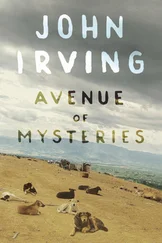Blaauwbroek’s instinct was right: it was a historic Sunday afternoon for Tubantia. An “Oude Vier” from Enschede won the race for the first time in its 112-year history. Aaron was standing on the windy bleachers when the crowd around him roared, an explosion of hoarse cheers mixing with the crackle of plastic beer glasses. And because fratboys will always do the predictable thing, the gang of fanatics down at the water’s edge tore off their clothes and swam, stark naked, out to the boat — at which moment he caught sight of the rector, who did something totally un predictable: Sigerius flung his half-filled beer tumbler into the grass and crossed the mudbank toward the water — Aaron had already clambered down from the bleachers, his camera lens followed the grinning rector as he removed his suit — everything came off, his shirt, his socks, his underwear, all except the necktie, a rowing tie, of course he’d let them foist a team tie on him, he was an honorary member of every club with a beer tap — and just before he broke into a sprint toward the canal to dive in after them, Aaron shouted his name, “Sigerius!” and snapped a photo of him from about four meters away, in all his glory.
Joni’s dad was right, it was nice work, it was in all respects a fantastic photo. There was speed: his subject, filling the frame, stood on the balls of his feet, his arms thrown into the air, and while his torso appeared to already be heading for the glistening strip of water in the background, his bellowing mouth and furious eyes looked straight at the lens. The late-afternoon sun floodlit his naked body, the composition seemed meticulously arranged: Sigerius’s outstretched left hand pointed more or less in the direction of the boat off in the canal; like a stylized sporting photograph, it resonated with a Greek-Olympian buzz. But this was all photographer blahblah — it was obvious why the newspapers wanted the picture. Even before Aaron left Houten he spent a quarter of an hour squabbling with a PR girl from Tubantia University, who insisted the photo had to be run by her department for approval, which of course would never be granted. On the contrary, the next morning the editors treated him like he was Robert Capa. “You bet I’m going to print that photo,” snorted Blaauwbroek. “It’s going to the printer’s in an armored car, and I’ll guard the presses with my life if need be.”
After that the naked rector surfaced everywhere, blown up above the bar in the rowing club canteen, on a local debating society’s T-shirts, on a poster announcing a massive summer festival on campus. Aaron saw him taped to dormitory bathroom doors. And, coincidence or no, Sigerius was increasingly the subject of wild speculation, in the fraternities on the Oude Markt, at parties in the campus housing. The rector was said to have traveled with Ruska through the Soviet Union and China en route to Japan, trashing Russian eateries on the way; he was purported to have been given electroshock treatment in an American madhouse after his big mathematical breakthrough; there were allegedly children from an earlier marriage who had come to no good. You only had to take a better look at the photo, and all doubt melted off the paper onto your lap. Everyone could see that Sigerius’s ears were representative of the body hidden beneath those immaculate two-piece suits, mostly monotonous dark blue, sometimes light-gray pinstripe; the body, so crudely exposed, appeared surprisingly tough and sinewy, hard, unbreakable—“dry,” to express it in sports terms. It was difficult not to have an opinion about that body, or about the clearly visible tattoos on the left side of his chest, over Sigerius’s heart: Aaron recognized the inscription, in cheap, dark-blue sailor’s ink, the pair of Japanese characters—“judo.” It evoked conflicting reactions: in 1995, not only were tattoos relatively rare, they were downright tacky. But at the same time it tallied entirely with Sigerius’s physicality, the apeman who would tip back his chair during meetings, balancing on the back legs until he had to grab the edge of the table, who rolled his shoulders loose like a trapeze artist during the coffee breaks, looking around to see if there was anyone who needed a thrashing before the meeting reconvened — murky keyholes through which the campus could catch a glimpse of another, discarded Sigerius, a thug, a he-man whose dream career had begun with two European judo titles, a fighter for whom the Munich Olympics should have been the highlight of his life.
In interviews they read that their rector was, like Ruska, tipped for a medal in 1972, but that a month before the Games, fate intervened: hungry for a custard donut, Sigerius crossed the Biltstraat in Utrecht, and just as the soft, creamy custard made contact with his mouth he was sideswiped by a motor scooter, whose metal footboard drove straight through his shin: crack , goodbye athletic career. What no journalist, no student, no scientist could get enough of was the idea that without that uneaten donut, the real miracle of Sigerius’s career would never have taken place. The Miracle of the Antonius Matthaeuslaan, as he himself called it, after the street in Utrecht where for eight months he was confined to a bed in a tiny upstairs apartment, encased up to his groin in plaster. In the dark winter following the ’72 Olympics, as Joni’s father, bruised and broken, lay thumbing through a cardboard box of back issues of waiting-room magazines, he came across a stray exam booklet from the Dutch Mathematics Olympiad — a pamphlet full of uncommonly difficult problems for uncommonly brainy highschool students — and out of sheer boredom started scribbling sums in the margins. The next morning he was finished.
Exactly what happened in those twenty-four hours, which doors were flung open in Sigerius’s traumatized athlete’s head, is anybody’s guess, but the fact was that within three years he had graduated summa cum laude from the Utrecht Mathematics Department, produced an alarmingly brilliant doctoral dissertation, and in the early ’80s moved with his family to Berkeley, California. And there, at long last, he reached his Olympian peak. The Ramanujan of Utrecht forced a breakthrough in knot theory, a branch of mathematics that attempts to understand the number of ways in which a piece of rope can be tied — there is no conciser, simpler definition of his work — which earned him the Fields Medal in 1986 at the quadrennial congress of the International Mathematics Union.
All this shot through Aaron’s mind when he recognized the woman sitting diagonally across from him. Despite her metamorphosis he knew straightaway who she was. There, next to a gum-chewing girl in the crimson sales uniform of some chain store, sat Joni’s mother. He was blinded by a stroboscopic shock of white light.
He had been jolted out of a dreamless doze, and although he was still sitting in the express train to Brussels — they’d already passed Liège — his situation had altered drastically in the half hour he’d been sleeping. The carriage was now jam-packed, the evening light that shone through the windows appeared heavy, leaden, it was Belgian light, refracted and made turbid by the undulating landscape. Tineke Sigerius, he saw in a glance, leaned with her temple against the window and stared absently at the receding Walloon hills and single-steepled villages. His first reflex was to bolt, make a run for it, but his escape route was blocked by standing passengers — so to get up and move to the other end of the compartment was virtually impossible. His body acted as though it were racing up a steep slope in blind panic. He sat like this for several minutes, sweating, hyperventilating, exhorting himself to calm down, in anticipation of the confrontation.
Nothing happened. Whenever a bump or unexpected noise jerked Tineke Sigerius away from the view, he felt her eyes glide over his jittery body without stopping. She pretended not to see him . They were in the same boat, he realized, she didn’t want this any more than he did. Happenstance had forced her to sit across from him, she was glad to get a seat in the overfull Sunday evening train, and only once she’d settled in did she recognize him. She must have been relieved to see that he was sleeping, a lucky break that allowed her to catch her breath and devise a strategy. She had boarded in Liège, which surprised him more than that she was heading for Brussels. What was Tineke Sigerius doing in Liège? He hadn’t seen or spoken to her for eight years, of course plenty could have changed since then. Maybe she and Sigerius had left Enschede, maybe Sigerius was a European commissioner by now and they had moved to Belgium. This coincidence struck him as overwhelmingly unfair. Perhaps they had split up and she was living here alone? Of course someone else would have taken his place by now; she’d have a real son-in-law, a rich, successful one. Wallowing in self-pity, he fantasized that Tineke was not on her way to Brussels after all, but to Paris, the city of her grandchildren, where Joni now lived and worked (her American adventure could only have lasted a couple of years, he guessed) and ran a family together with some French moron, a guy with a fat face, greased-back black hair, and platinum cuff links, he could just see him opening their lacquered front door, his welcoming arms spread out for his mother-in-law on the granite doorstep.
Читать дальше












